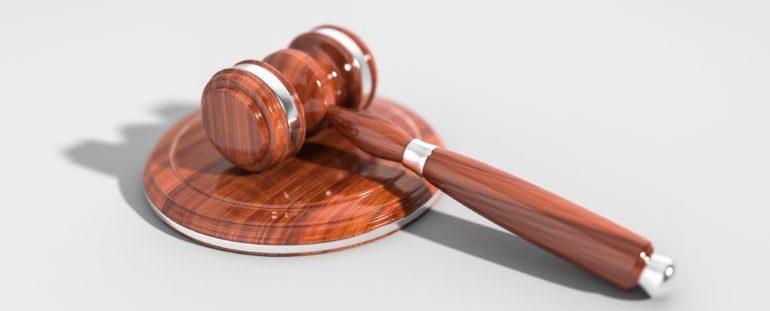
By Kevin B. Hambly
Judge Katherine Bacal is the presiding judge in Department 69 of the San Diego Superior Court. Prior to her time on the bench, Judge Bacal studied literature and the history of ideas at the University of Redlands, where she earned a bachelor’s degree in 1985. After earning her B.A., she went on to study at the University of California, San Diego, where she sought a doctorate of philosophy in history. She then discovered that she wanted to make a real impact and decided that she really wanted to practice law. She then went to law school at the University of Texas in Austin, where she earned her JD in 1991.
Following her graduation from law school, Judge Bacal worked as an associate at Gibson, Dunn & Crutcher. She stayed at Gibson Dunn for nine years, where her primary practice focused on account and malpractice defense cases and general business litigation. In the year 2000, however, Gibson Dunn’s San Diego office closed down, and Judge Bacal found another associate position with Baker & McKenzie. During Judge Bacal’s time at Baker & McKenzie, her primary practice focused on defense work for class actions and unfair business practices claims. She became a partner at Baker & McKenzie in 2003 and held that position until 2008. Judge Bacal was appointed to the bench that same year. During Judge Bacal’s time on the bench, she has presided over family law cases, felony arraignments, and criminal trials. Now, Judge Bacal’s court handles civil litigation cases.
During Judge Bacal’s legal career, she has been the president of Lawyers Club of San Diego, a member of the Louis M. Welsh Chapter of the American Inns of Court, and on the board of directors of the Association of Business Trial Lawyers San Diego. It was a pleasure interviewing Judge Bacal for the March 2020 edition of For the Record’s Tips from the Bench.
Judge Bacal’s Decision to Enter the Legal Profession
Prior to deciding to practice law, Judge Bacal was in pursuit of a PhD in European History at the University of California, San Diego. During her studies at UCSD, she learned that she really did not want to become a professor and that academia was ultimately not for her. Alternatively, Judge Bacal learned that she wanted to do something that would impact everyday life. While Judge Bacal did not grow up knowing that she wanted to become a lawyer, she decided that the practice of law was for her after she learned more about the profession over time.
Judge Bacal’s Experience Working on Pro Bono Cases
Judge Bacal has worked on several pro bono cases. A few that stick out, however, is one where she defended an artist who created a sculpture that became a public work of art. The community did not like the sculpture, and the dispute involved the ability of the community to force the artist into changing the work of art. She also worked on a volunteer panel, where she assisted victims of the California fires.
Judge Bacal’s Decision to Change from Private Practice to Superior Court Judge
Judge Bacal decided to switch from private practice to working as a judge of the Superior Court out of a desire to give back to the community. While she enjoyed the salary of private practice, she found that she was not as fulfilled because it was lacking a public service element. As a judge, you are able to serve the public in a way that you cannot in private practice, which is what inspired Judge Bacal to become a judge.
Judge Bacal’s Advice for Lawyers Appearing before Her Court
Always be nice and know the rules. Also, be prepared to present your case, and be on time. Lastly, be kind to your adversary. We are all just trying to make a living, so always remember to be civil.
Judge Bacal’s Advice for New Lawyers Who Are Learning to Navigate the Practice of Law
Similar to above, always remember to be civil. San Diego is a small town, and word gets around quickly. If you are someone who becomes known for always being good for your word, people will remember that. The opposite is true too.
Also, learn the value of using the telephone rather than email or letter. Not everything needs to be conveyed using an email or letter, and things tend to happen when people pick up the phone to actually speak with someone. While you may want to follow up your telephone conversation with a confirming email, actually talking to someone on the phone seems to make a difference.
Moreover, try to do things that force you to get out of the office. Get involved with the community, and get involved with organizations like the SDCBA, La Raza, Lawyers Club, etc.
Lastly, courts are public places, and they are a great place to learn. If you know that a good trial attorney is giving an opening argument, take the opportunity to go down to the courthouse and witness the trial attorney perform. You can learn a lot from watching other people.
Kevin B. Hambly is an Associate Attorney with Shinnick & Ryan LLP.